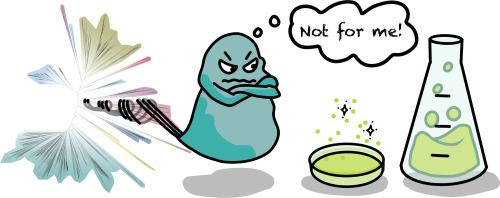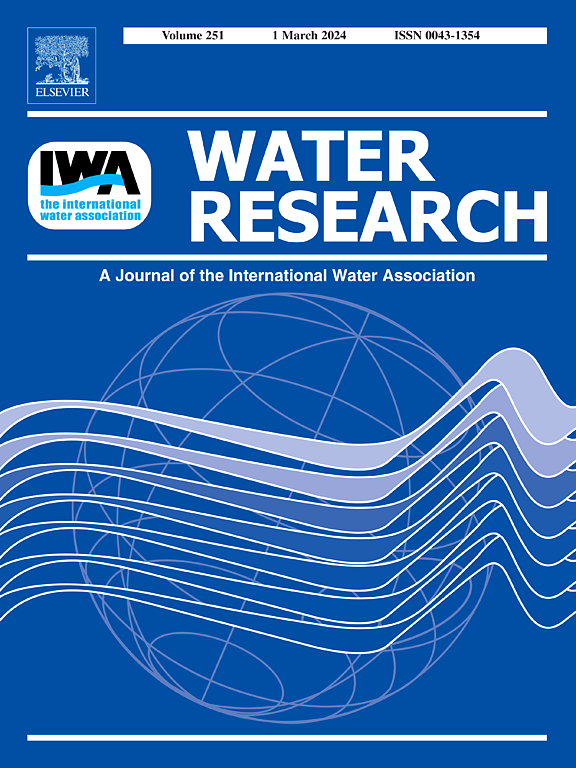Earth's most needed uncultivated aquatic prokaryotes
IF 12.4
1区 环境科学与生态学
Q1 ENGINEERING, ENVIRONMENTAL
引用次数: 0
Abstract
Aquatic ecosystems house a significant fraction of Earth's biosphere, yet most prokaryotes inhabiting these environments remain uncultivated. While recently developed genome-resolved metagenomics and single-cell genomics techniques have underscored the immense genetic breadth and metabolic potential residing in uncultivated Bacteria and Archaea, cultivation of these microorganisms is required to study their physiology via genetic systems, confirm predicted biochemical pathways, exploit biotechnological potential, and accurately appraise nutrient turnover. Over the past two decades, the limitations of culture-independent investigations highlighted the importance of cultivation in bridging this vast knowledge gap. Here, we collected more than 80 highly sought-after uncultivated lineages of aquatic Bacteria and Archaea with global ecological impact. In addition to fulfilling critical roles in global carbon, nitrogen, and sulfur cycling, many of these organisms are thought to partake in key symbiotic relationships. This review highlights the vital contributions of uncultured microbes in aquatic ecosystems, from lakes and groundwater to the surfaces and depths of the oceans and will guide current and future initiatives tasked with cultivating our planet's most elusive, yet highly consequential aquatic microflora.


地球上最需要的原生水生原核生物
水生生态系统容纳了地球生物圈的很大一部分,然而居住在这些环境中的大多数原核生物仍未被开垦。虽然最近发展的基因组解析宏基因组学和单细胞基因组学技术强调了未培养的细菌和古细菌中存在的巨大遗传广度和代谢潜力,但需要通过培养这些微生物来研究它们的遗传系统生理学,确认预测的生化途径,开发生物技术潜力,并准确评估营养周转。在过去的二十年中,文化独立调查的局限性突出了培养在弥合这一巨大知识鸿沟方面的重要性。在这里,我们收集了80多个备受追捧的水生细菌和古细菌,这些细菌和古细菌具有全球生态影响。除了在全球碳、氮和硫循环中发挥关键作用外,许多这些生物被认为参与了关键的共生关系。这篇综述强调了未培养微生物在水生生态系统中的重要贡献,从湖泊和地下水到海洋表面和深处,并将指导当前和未来的举措,以培养我们星球上最难以捉摸的,但非常重要的水生微生物群。
本文章由计算机程序翻译,如有差异,请以英文原文为准。
求助全文
约1分钟内获得全文
求助全文
来源期刊

Water Research
环境科学-工程:环境
CiteScore
20.80
自引率
9.40%
发文量
1307
审稿时长
38 days
期刊介绍:
Water Research, along with its open access companion journal Water Research X, serves as a platform for publishing original research papers covering various aspects of the science and technology related to the anthropogenic water cycle, water quality, and its management worldwide. The audience targeted by the journal comprises biologists, chemical engineers, chemists, civil engineers, environmental engineers, limnologists, and microbiologists. The scope of the journal include:
•Treatment processes for water and wastewaters (municipal, agricultural, industrial, and on-site treatment), including resource recovery and residuals management;
•Urban hydrology including sewer systems, stormwater management, and green infrastructure;
•Drinking water treatment and distribution;
•Potable and non-potable water reuse;
•Sanitation, public health, and risk assessment;
•Anaerobic digestion, solid and hazardous waste management, including source characterization and the effects and control of leachates and gaseous emissions;
•Contaminants (chemical, microbial, anthropogenic particles such as nanoparticles or microplastics) and related water quality sensing, monitoring, fate, and assessment;
•Anthropogenic impacts on inland, tidal, coastal and urban waters, focusing on surface and ground waters, and point and non-point sources of pollution;
•Environmental restoration, linked to surface water, groundwater and groundwater remediation;
•Analysis of the interfaces between sediments and water, and between water and atmosphere, focusing specifically on anthropogenic impacts;
•Mathematical modelling, systems analysis, machine learning, and beneficial use of big data related to the anthropogenic water cycle;
•Socio-economic, policy, and regulations studies.
 求助内容:
求助内容: 应助结果提醒方式:
应助结果提醒方式:


